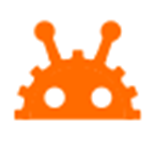
(View Complete Item Description)
The idea of Threshold Concepts has been widely discussed in higher education for more than a decade. As defined by Jan H.F. Meyer and Ray Land, a threshold concept “can be considered as akin to a portal, opening up a new and previously inaccessible way of thinking about something. It represents a transformed way of understanding, or interpreting, or viewing something without which the learner cannot progress”. (Meyer, J., & Land, R. (2003). Put another way, threshold concepts are the core ideas and principles in any discipline that often become second nature to experts, but may be completely foreign to the novice. And yet, without an understanding of these core concepts, learners cannot progress in further learning in any given subject area. As with all academic disciplines, threshold concepts exist in the area of Information Literacy; grasping information literacy threshold concepts is essential for students to become effective researchers.In 2015, the American Association of College and Research Libraries (ACRL) replaced their Information Literacy Competency Standards, with a “Framework for Information Literacy for Higher Education”. The Framework is organized into six Frames, each anchored by an information literacy threshold concept and supported by a set of knowledge practices and dispositions. These six information literacy threshold concepts include:Authority is Constructed and ContextualInformation Creation is a ProcessInformation Has ValueResearch as InquiryScholarship as ConversationSearching as Strategic ExplorationBased on the research studies and experiences of academic instruction librarians who see first-hand the challenges students experience when conducting college-level research, the new Framework was developed to support information literacy instruction in the digital age. The literature suggests that most students entering college are unprepared for the rigors of academic research. (Head, A. J. (2013). If students can gain an understanding of these six threshold concepts, they will likely be better researchers and generally more successful in their academic work.What are the implications of this huge paradigm shift in college-level research instruction for school librarians? Simply put, school librarians have a wonderful opportunity to prepare students for college level research by systematically teaching information literacy threshold concepts in grades K-12. A scaffolded information literacy instruction program focused on threshold concepts along with standards and skills could help pave the way for students to be effective college researchers. With an estimated 30% of US college and university students dropping out after their first year, preparing research savvy students for the demands of college assignments could have a significant impact on student success and ultimately on college graduation rates. Instructional ObjectivesBy the completion of Module 1, students will be able to identify a threshold concept from their field or discipline and design a learning activity that could be used to teach this concept.By the completion of Module 2, students will be able to identify one or more stumbling blocks that students encounter when conducting academic research, and describe how a better grasp of one of the six ACRL Information Literacy threshold concepts could help overcome this research barrier.By the completion of Module 3, students will be able to create a lesson plan for a K-12 classroom which teaches or reinforces the threshold concept “Research as Inquiry”.
Material Type:
Module
Author:
Susan Mikkelsen




















